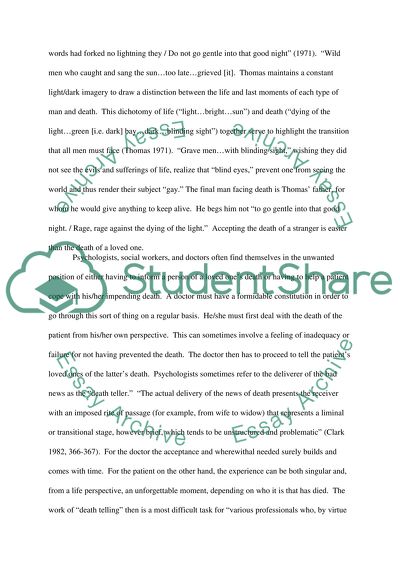Cite this document
(“Coping With Death Admission/Application Essay Example | Topics and Well Written Essays - 1750 words”, n.d.)
Coping With Death Admission/Application Essay Example | Topics and Well Written Essays - 1750 words. Retrieved from https://studentshare.org/philosophy/1564910-coping-with-death
Coping With Death Admission/Application Essay Example | Topics and Well Written Essays - 1750 words. Retrieved from https://studentshare.org/philosophy/1564910-coping-with-death
(Coping With Death Admission/Application Essay Example | Topics and Well Written Essays - 1750 Words)
Coping With Death Admission/Application Essay Example | Topics and Well Written Essays - 1750 Words. https://studentshare.org/philosophy/1564910-coping-with-death.
Coping With Death Admission/Application Essay Example | Topics and Well Written Essays - 1750 Words. https://studentshare.org/philosophy/1564910-coping-with-death.
“Coping With Death Admission/Application Essay Example | Topics and Well Written Essays - 1750 Words”, n.d. https://studentshare.org/philosophy/1564910-coping-with-death.


